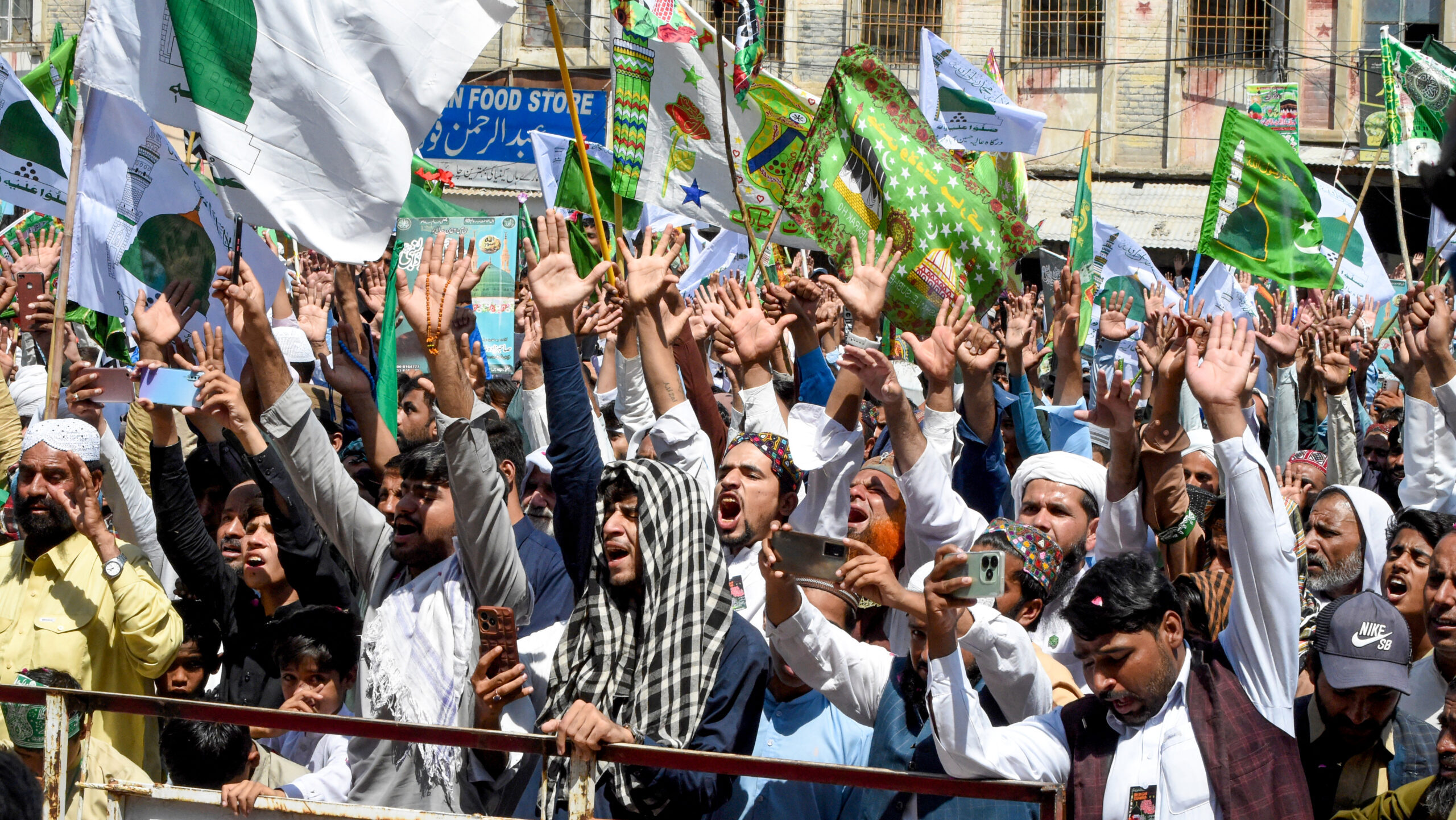Pakistan Foils Baloch Separatists’ Plot To Use Female WHO Worker as Suicide Bomber
Since 2022, the separatist Balochistan Liberation Army has employed female suicide bombers in at least three attacks, prompting the Pakistani government to crack down on attempts to radicalize Baloch women
[Islamabad] Pakistan’s security agencies have rescued a female health care worker whom Baloch separatists were allegedly manipulating to carry out a suicide attack.
Adeela Khudabaksh Baloch said she had been stationed in Turbat, a restive area of Balochistan when Baloch separatists attempted to isolate and exploit her. A trained nurse, she was working on a project with the World Health Organization.
“Tragically, I fell under the influence of individuals who manipulated me into agreeing to carry out a suicide attack,” she said on state TV on Wednesday. “I never stopped to think about the countless innocent lives that would have been lost.”
Khudabaksh Baloch made her live statement from an undisclosed location alongside Balochistan government spokesperson Shahid Rand, provincial assembly member Farah Azeem Shah, and her father.
She recounted spending three days in the mountains, where she met another woman and several young men, all of whom had been given code names.
Women who carry out suicide attacks for the Baloch cause have been coerced, blackmailed, or manipulated into doing so, Khudabaksh Baloch said. “I was misled so thoroughly that I didn’t realize what was happening, but now I have been saved,” she added.
In a statement on Thursday, the Armed Forces Media Wing said that Khudabaksh Baloch’s capture and confession “demonstrates the vigilance of Pakistan’s security forces in foiling the malicious designs of enemies targeting the country.”
The statement accused Baloch nationalists of “exploiting women as shields.”
Give the gift of hope
We practice what we preach:
accurate, fearless journalism. But we can't do it alone.
- On the ground in Gaza, Syria, Israel, Egypt, Pakistan, and more
- Our program trained more than 100 journalists
- Calling out fake news and reporting real facts
- On the ground in Gaza, Syria, Israel, Egypt, Pakistan, and more
- Our program trained more than 100 journalists
- Calling out fake news and reporting real facts
Join us.
Support The Media Line. Save democracy.
The Baloch people are an ethnic group from South and Southwest Asia. About half of the world’s 10 million Baloch people live in Pakistan’s southwestern province of Balochistan, the country’s largest province by area and a region rich in natural resources. The area is crucial to the $62 billion China-Pakistan Economic Corridor, leading Baloch separatists to accuse both Pakistan and China of exploitation. Groups like the Balochistan Liberation Army (BLA) have been fighting since at least 2004 to establish a homeland for the Baloch people in a territory currently located across Pakistan, Iran, and Afghanistan.
The BLA’s Majeed Brigade recently made headlines for its use of women as suicide bombers, marking a significant shift in its operational tactics. Starting in 2022, female suicide bombers were involved in at least three separate BLA attacks.
Azeem Shah, who serves in the provincial assembly, told The Media Line that other “misguided Baloch women” should be inspired by Khudabaksh Baloch’s refusal to be brainwashed.
“The Balochistan government is actively fighting back and taking decisive measures” against attempts to radicalize Baloch youth, Shah said.
BLA, which the US designated as a terrorist group in 2019, primarily disseminates its propaganda through Telegram. According to intelligence reports, the group is now expanding its online network through the widely popular WhatsApp platform.
BLA spokesperson Jeeyand Baloch confirmed that “many women have joined the Majeed Brigade, with hundreds ready for suicide attacks.” He did not disclose the exact number of female fighters.
Speaking on condition of anonymity, a Quetta-based security official told The Media Line that terrorist organizations often use female suicide bombers because they can approach targets more easily.
In Pakistan, women are rarely subjected to thorough searches out of cultural respect for their veils, allowing them to conceal explosives in their clothing and often pass through security checkpoints unchecked.
“In Pakistan, women are rarely subjected to thorough searches out of cultural respect for their veils, allowing them to conceal explosives in their clothing and often pass through security checkpoints unchecked,” he explained.
Female students specifically are targets for organizations like the Majeed Brigade, the official said, noting that law enforcement organizations have started keeping a close watch on educational institutions.
Abdullah Jan, a Quetta-based counterterrorism analyst, said that Baloch separatist organizations have shifted toward recruiting women and people from the middle class. This trend “could perpetuate anti-state sentiments across generations,” he told The Media Line.
He said that security forces had recently raided women’s dorms at the University of Balochistan to monitor radicalization among female students.
Adeeb Uz Zaman Safvi, a Karachi-based veteran security analyst, said that quelling Baloch separatist violence will require addressing the root cause of the issue.
Balochistan, despite being the largest and richest province, has not benefited from its resources and suffers from a lack of fair governance. The Pakistani establishment has historically addressed Balochistan’s issues insincerely, allowing extremist groups like the BLA to exploit the situation.
“Balochistan, despite being the largest and richest province, has not benefited from its resources and suffers from a lack of fair governance,” he told The Media Line. He said that the government’s refusal to cooperate with tribal leaders had backfired.
“The Pakistani establishment has historically addressed Balochistan’s issues insincerely, allowing extremist groups like the BLA to exploit the situation,” Safvi said. “The current political crisis has heightened risks, with officials prioritizing the suppression of political rivals over addressing real terrorist threats.”



